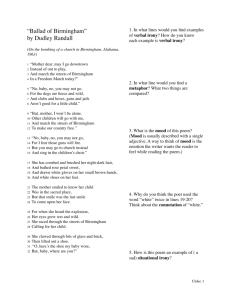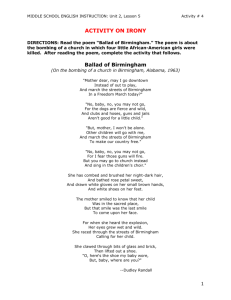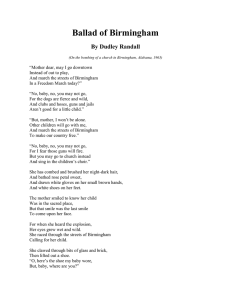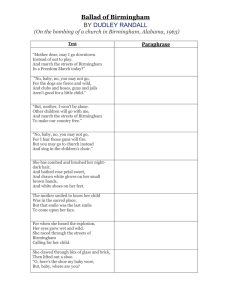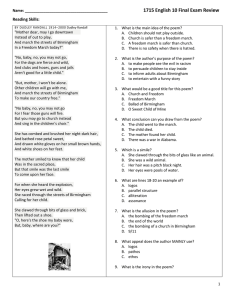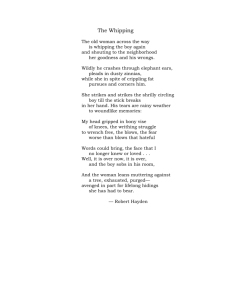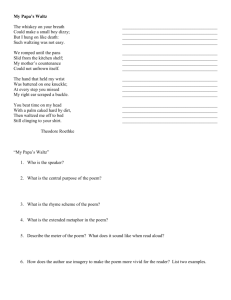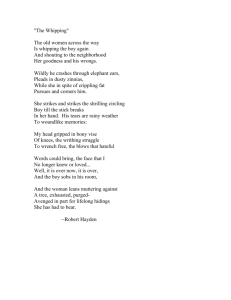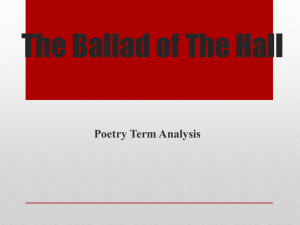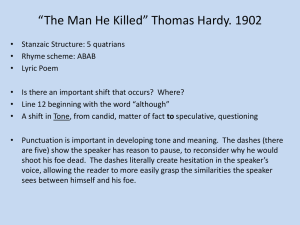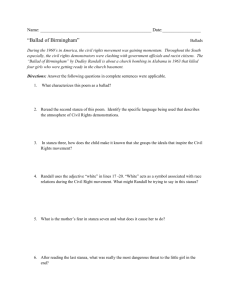Week 1 Readings 1) The Whipping The Whipping by Robert Hayden
advertisement
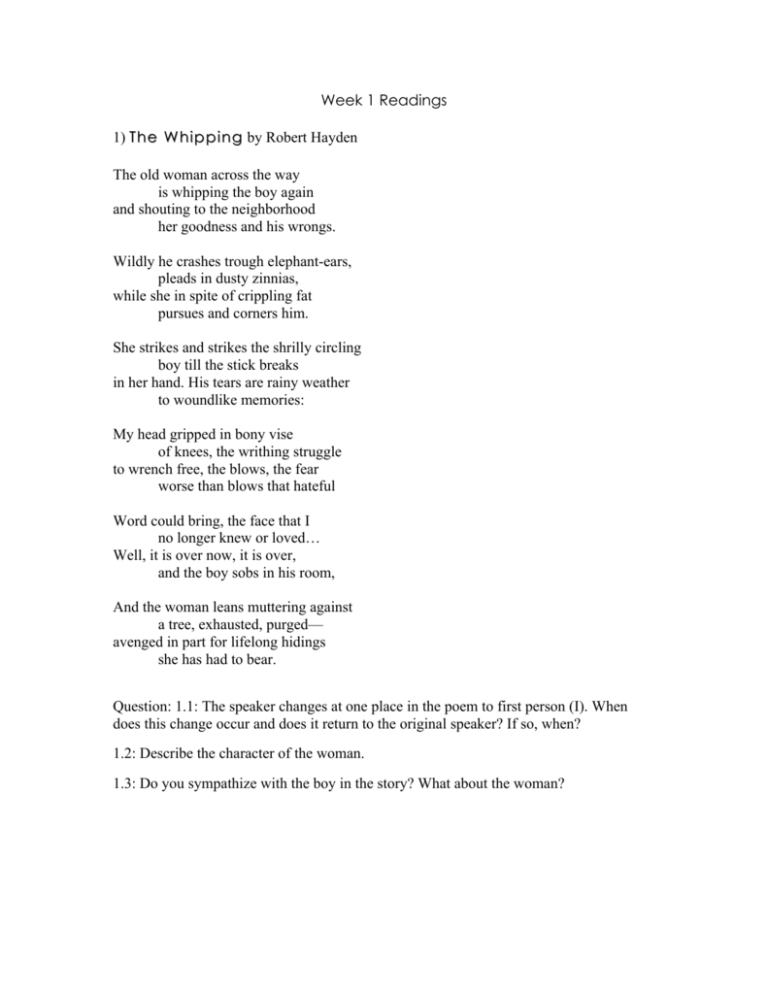
Week 1 Readings 1) The Whipping by Robert Hayden The old woman across the way is whipping the boy again and shouting to the neighborhood her goodness and his wrongs. Wildly he crashes trough elephant-ears, pleads in dusty zinnias, while she in spite of crippling fat pursues and corners him. She strikes and strikes the shrilly circling boy till the stick breaks in her hand. His tears are rainy weather to woundlike memories: My head gripped in bony vise of knees, the writhing struggle to wrench free, the blows, the fear worse than blows that hateful Word could bring, the face that I no longer knew or loved… Well, it is over now, it is over, and the boy sobs in his room, And the woman leans muttering against a tree, exhausted, purged— avenged in part for lifelong hidings she has had to bear. Question: 1.1: The speaker changes at one place in the poem to first person (I). When does this change occur and does it return to the original speaker? If so, when? 1.2: Describe the character of the woman. 1.3: Do you sympathize with the boy in the story? What about the woman? 2) Ballad of Birmingham by Dudley Randall “Mother dear, may I go downtown Instead of out to play, And march the streets of Birmingham In a Freedom March today?” “No, baby, no, you may not go, For the dogs are fierce and wild, And clubs and hoses, guns and jails Aren’t good for a little child.” “But, mother, I won’t be alone. Other children will go with me, And march the streets of Birmingham To make our country free.” “No, baby, no, you may not go, For I fear those guns will fire. But you may go to church instead And sing in the children’s choir.” She has combed and brushed her night-dark hair, And bathed, rose petal sweet, And drawn white gloves on her small brown hands, And white shoes on her feet. The mother smiled to know her child Was in the sacred place, But that smile was the last smile To come upon her face. For when she heard the explosion, Her eyes grew wet and wild. She raced through the streets of Birmingham Calling for her child. She clawed through bits of glass and brick, Then lifted out a shoe. “O, here’s the shoe my baby wore, But baby, where are you?” Question 2.1: Having watched the video on the blog, which struck a more emotional nerve with you? Why do you think that was? 2.2: Would you have understood this poem without additional information? 2.3 Beyond the murder of the children, why do you think the Birmingham bombing stirred up such shock for African-American citizens during this time period? 3) The Man He Killed by Thomas Hardy Had he and I but met By some old ancient inn, We should have sat us down to wet Right many a nipperkin*! Half-pint cup But ranged as infantry, And staring face to face, I shot at him as he at me, And killed him in his place. I shot him dead because— Because he was my foe, Just so: my foe of course he was; That’s clear enough; although He thought he’d ‘list, perhaps, Off-hand-life—just as I— Was out of work—had sold his traps—* No other reason why. Belongings Yes; quaint and curious war is! You shoot a fellow down You’d treat, if met where any bar is, Or help to half-a-crown. Question 3.1: What defense does the man give for shooting the other man? What does this tell us about the speaker? 3.2 In what ways are the speaker in “Dulce Decorum Est” and this poem, similar and dissimilar?
